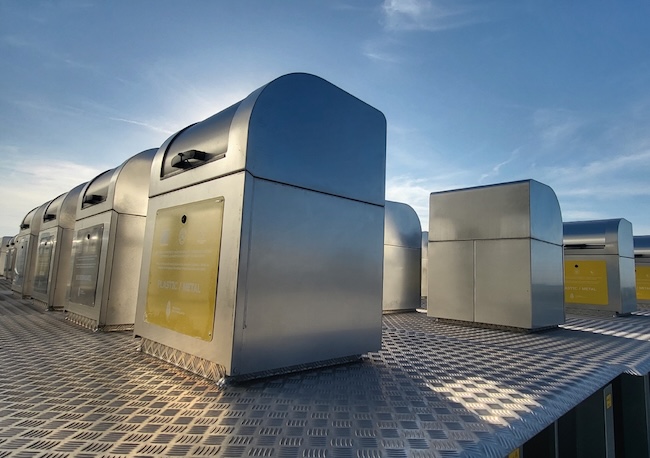Sopsa expands Waste Management Operations in Romania
Sopsa SA, a multinational company specializing in waste container systems, is expanding its presence in Romania as part of a broader strategy to grow across Eastern Europe. The company, which entered the Romanian market in 2023, is currently involved in a large-scale project with Sector 6 of Bucharest and has established a local production facility to support future operations.

Founded in Portugal, Sopsa has over 30 years of experience in developing and supplying underground waste collection systems. Its Lasso™ containers are in use in several countries, including Portugal, France, Denmark, Poland, and Morocco. Romania is now a focal point in the company’s regional plans, due in part to its geographic position and growing demand for modern waste infrastructure.
The Bucharest project includes the installation of more than 700 high-capacity underground containers, nearly half of which have already been deployed. These units are being manufactured locally at Sopsa’s production facility in Eli Parks, which covers 6,400 square meters of industrial and office space. The initial investment in the site was approximately €2 million.
According to Pedro Martins da Costa, CEO of Sopsa, the Romanian market presents opportunities for companies offering updated and sustainable waste collection systems, particularly in cities facing pressure to improve environmental performance and urban aesthetics.
“The Romanian market holds strong potential for modern waste management equipment, especially in urban areas looking for sustainable solutions,” says Pedro Martins da Costa, CEO of Sopsa, SA. “Underground containers have gained popularity because they enhance the aesthetics of cities, residential neighborhoods, and office areas, while providing sustainable, environmentally friendly benefits. Additionally, our local production in Romania adds another key advantage.”
Underground containers offer certain practical advantages over traditional waste bins. Their larger storage capacity reduces the frequency of collection, and storing waste below ground can help limit odors and pests—factors that are relevant in densely populated urban areas. The visual impact is also reduced, which is a growing concern for local governments aiming to improve public spaces.
Romania has one of the lowest recycling rates in the European Union and has committed to increasing its municipal recycling rate from 55% by 2025 to 65% by 2035. Achieving this goal will require significant investments in collection and sorting infrastructure, and both public and private actors are expected to play a role in addressing these gaps.
Sopsa’s local production capability may offer logistical and cost benefits as it pursues contracts in other Romanian cities and neighboring countries. The company has stated that its Romanian unit will serve as a base for further expansion into Eastern Europe, though no specific future projects have yet been announced.
While it remains to be seen how broadly Sopsa will scale its operations in the region, its current activity in Bucharest and its investment in local manufacturing suggest a long-term approach to the Romanian market





 (1).jpg)